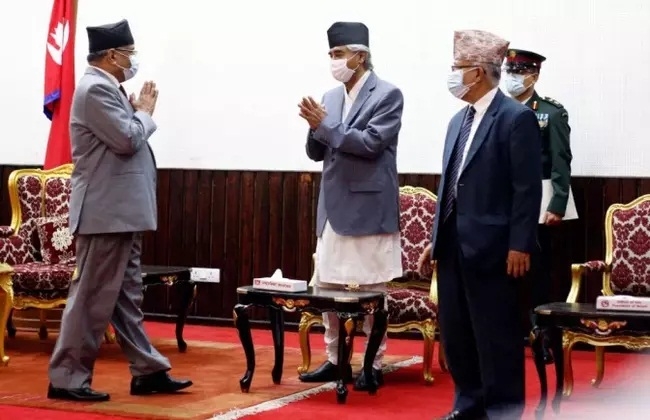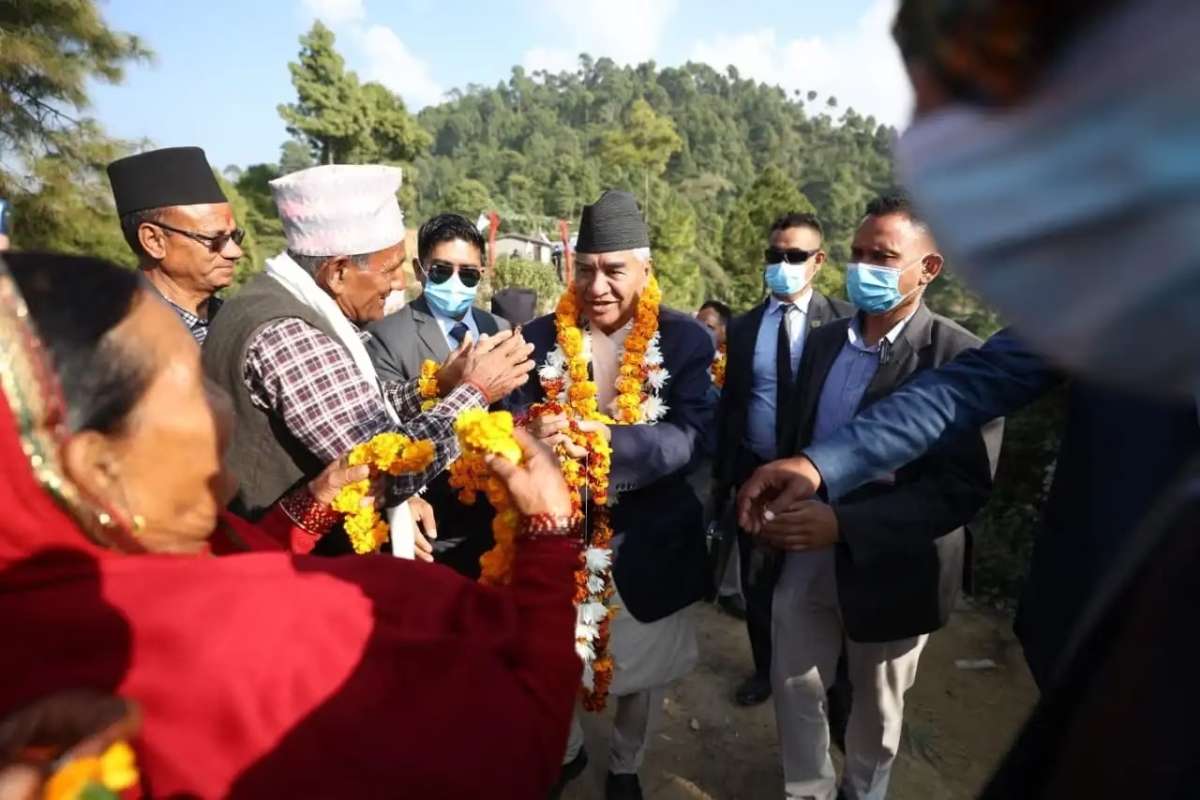Though the final results of the general elections are yet to be announced, it is clear now that the new government will be led by the Nepali Congress, a report by Mahua Venkatesh
Amid dwindling economic situation, Nepal’s new government has its task cut out—chalking out clear economic and foreign policies especially as it is slated to graduate to a middle income nation status by December 2026. Kathmandu therefore must make use of the interim period for a smooth transition. But a lack of clarity in Nepal’s policies can dent inflow of foreign investments and other economic activities.
Though the final results of the general elections are yet to be announced, it is clear now that the new government will be led by the Nepali Congress.
In September, Nepal President Bidya Devi Bhandari’s statement was aired at the Chinese Communist Party organised Global Security Initiative (GSI) event which was organised by the Chinese Communist Party. Bhandari’s comments at the event created a stir among a section of the citizens as well as the political class. “Such actions do not remain restricted to the country’s political dynamics but these send messages to the world..these are highly avoidable,” Vijay Kant Karna, Executive Chairman, Centre for Social Inclusion and Federalism in Kathmandu told India Narrative.

Karna added that the Himalayan country’s foreign policy during former Prime Minister KP Sharma Oli’s tenure had come under the spotlight. Nepal’s policies had been one-sided favouring the Chinese.
“Nepal must give this message to China that Kathmandu’s foreign policies will be guided by its own interests and no other state must be allowed to interfere in its internal affairs,” Karna said.
While Nepal signed up for the Belt and Road Initiative (BRI) in 2017, no project has taken off. Notwithstanding the cordial relations that Nepal and China have traditionally shared, several issues have started emanating.
Navita Srikath, geopolitical, forensic and security analyst added India and Nepal must thrash out a concrete bilateral plan to boost their economies and foreign policies. “India wants a stable neighbourhood and with Nepal it has an open border policy with several projects underway. Therefore, it is important to have a clear India-Nepal policy,” she said.
Earlier Bhaskar Koirala, Director of the Nepal Institute of International and Strategic Studies pointed out that Kathmandu’s India strategy must be clear and concise. It should focus on cleaning up the clutter and confusion while a precise message should be sounded to not just India and the Indian leadership, but to his own constituency, that Nepal accords the highest priority to developing friendly and constructive relations with New Delhi. “It must be emphasised that relations with India are unique for one simple reason, namely the more than 1800 kilometres open border,” Koirala said.

Leave a Reply